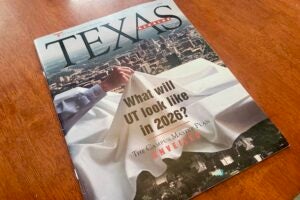Presidential inaugurations matter because they usually mark a peaceful transfer of power and a new beginning for our divided democracy. Even as early as 1801, when Thomas Jefferson replaced John Adams as president after a bitter partisan election, Jefferson called on his “fellow-citizens” to “unite with one heart and one mind.” “We are all Republicans, we are all Federalists,” he said.
Donald Trump is not Thomas Jefferson, but he should strive for the same healing language in his upcoming inaugural address.
Trump will have a unique opportunity to change the tone of public discussion from the anger of the election to the conciliation necessary for effective governance.
He should not diminish disagreements about trade, immigration, taxes, or other contentious issues, but rather he should emphasize deeper values that still unite all Americans. These values include freedom, opportunity and fairness.
Trump’s inaugural speech should explain his personal commitment to these core American values and why he holds them dear. He should show how these values tie him to past leaders from both parties, and how they will help him to chart a new course for the country – to “make America great again.”
By committing himself to values above specific policies, he can build connections with those who feel alienated by his campaign positions and his aggressive rhetoric. By committing himself to values, he can also escape the debilitating polarities that have divided Democrats and Republicans in recent years.
Beyond values, Trump should assure all Americans that he will keep them safe. That is the president’s most important responsibility. He is the commander in chief.
Recent evidence of Russian cyber attacks in the United States, as well as North Korean intercontinental missile development, international terrorism and homegrown hate violence imperil the freedoms of citizens and even the integrity of our democratic institutions. Trump must show that he cares about these issues, even if he disagrees with many conventional threat assessments.
He should not offer a national security plan, but instead an outline of how he will approach these threats. And answer how he will assess them and how he will prepare to respond.
Values and security, of course, depend on the economy. The final crucial element of a successful inaugural address is attention to how the government taxes and spends. Trump has made it clear that he intends to lower taxes and increase spending on infrastructure. His opening statement as president should explain the relationship between the two, and how his economic vision will benefit all Americans. He should talk about how his low taxes and targeted spending policies will make American society more innovative, more competitive and more prosperous across communities.
Perhaps most importantly, Trump must articulate a governing philosophy. We know what he is against, but what is he for? And how will he use the complex and often limited levers of government to move the country forward?
A governing philosophy is not a laundry list of grievances or a jumble of emotional appeals. It is a coherent story that situates our current circumstances in the arc of history, explaining how we came to our current moment, and how the new president and his administration will help us turn today’s challenges into tomorrow’s opportunities. Trump must replace anger with aspiration and persuade listeners who did not vote for him to join with him nonetheless.
That was the brilliance of Jefferson’s moment in 1801, which Trump can re-create. Americans have been divided before, they have had contested elections before, and they have even feared foreign interference in their democracy before.
Nontraditional presidents, from Andrew Jackson to Ronald Reagan, are also frequent occurrences in our history. Jefferson reminded Americans that they need not agree on policies or personalities to support the improvement of their country, which remains “the world’s best hope.”
Successful presidents lead by appealing to this shared aspiration in their words and actions. Trump must start on Inauguration Day or he will never get another chance. His speech must summon what Abraham Lincoln called “the better angels of our nature.” “Though passion may have strained, it must not break our bonds of affection.” That is the historic calling for Trump’s speech and listeners all across our land.
Jeremi Suri holds the Mack Brown Distinguished Chair for Leadership in Global Affairs at The University of Texas at Austin. His newest book is “The Impossible Presidency: The Rise and Fall of America’s Highest Office.”
A version of this op-ed appeared in the Houston Chronicle, Waco Tribune Herald, Fort Worth Star Telegram, Austin American Statesman and The Rivard Report.
To view more op-eds from Texas Perspectives, click here.
Like us on Facebook.




